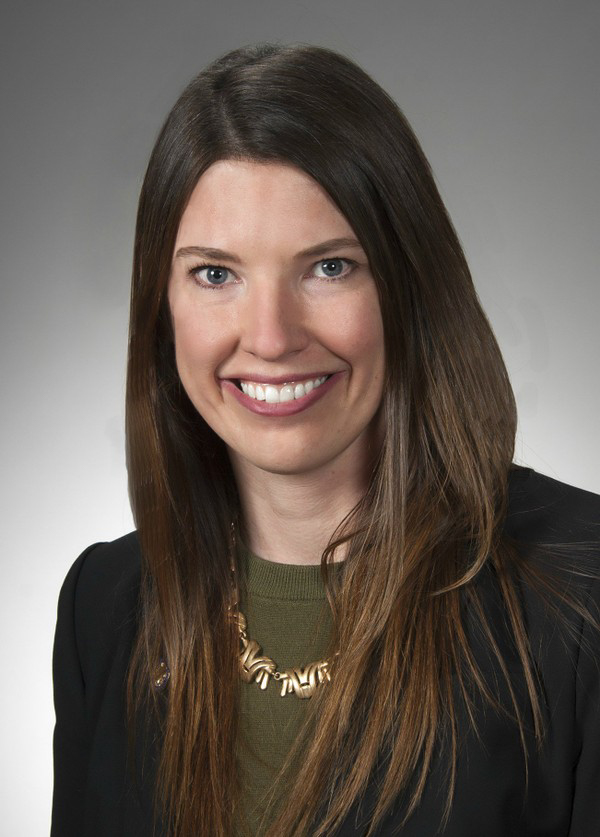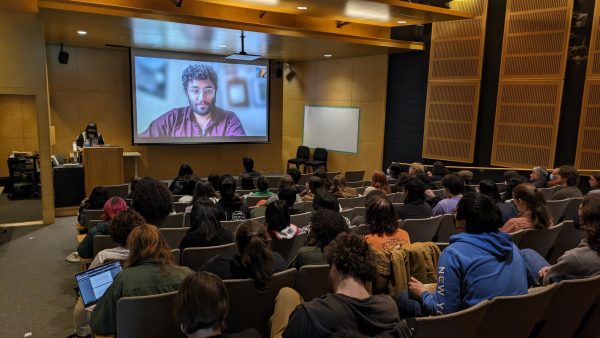Democratic Candidate for Secretary of State Visits Oberlin
Kathleen Clyde, a candidate for Ohio Secretary of State, visited Oberlin to give a speech Monday.
Democratic candidate for Ohio Secretary of State Kathleen Clyde visited campus Monday afternoon to present her platform and answer student questions in Wilder Hall. Clyde spoke on her commitment to voters’ rights and reform, as well as women’s and workers’ rights.
The question and answer session, hosted by the Oberlin College Democrats, allowed students to ask Clyde questions about her campaign — such as how Clyde has promoted her campaign, what are her goals for Ohio as a Democratic candidate, and what she has planned for Congress.
“We’ve been trying to have a lot of candidates come up at the state level because I think there’s a lot of opportunities to take some of these Republican seats, so we did have candidates for governor come earlier,” said College sophomore and co-chair of OC Democrats Abigail Kopp.
College sophomore and co-chair of OC Democrats Monica Dix asked Clyde about how she would use her position to promote social justice and equity. Clyde responded by noting the importance of voting reform in enacting social change and detailing the legislation she proposed on automatic voting. The legislation, according to Clyde’s campaign website, “will ensure Ohioans are added to the rolls when they do everyday things like get a driver’s license, seek disability services, or simply turn eighteen.”
“I think it’s really important, as [Clyde] mentioned — and I tried to get her to talk about it more — how there’s a lot of inequity when it comes to voting, and the Secretary of State’s Office is a great way to oppress marginalized people in the state,” Dix said. “It’s really important to elect a Secretary of State who is aware of that lack of equity.”
As Clyde mentioned, Ohio has had some of the longest voting lines in past elections. Waiting times varied based on a number of factors, one of the most prevalent being race — Black voters waited longer on average in line to vote than white voters.
College students have also faced obstacles in voting. The final vote for the 2004 general election was notoriously cast by a Kenyon College student around 4 a.m., after waiting in line for approximately 10 hours. As the College Coordinator for John Kerry’s presidential campaign, Clyde motivated students to stay in line despite long wait times, a role which she discussed at the question and answer session.
“There was an effort in the presidential primary to keep 17-year-olds from voting in the primary, even though they have the right to vote as long as they’re 18 by November,” Clyde said. “These attacks all add up, and I think they’re sending the exact wrong message to our young people in Ohio about their importance.”
The Ohio State Legislature has yet to adopt methods of making voting more accessible. Ohio was one of the last states to approve online voting for residents, and early voting polling stations are limited to only one location per county, meaning that big city residents face a significantly longer wait time than those from small towns. Clyde encouraged college students to continue working to help fight the provisions making it harder for students and marginalized people to vote.
In 2015, the Ohio State Legislature attempted to add a last-minute addition to the state transportation budget, requiring non-Ohio residents who register to vote in the state to re-register their vehicle within 30 days of voting registration, or else have their out-of-state license suspended. Clyde argued that the provision would make voting difficult for college students, who would have to pay a fee for re-registering their vehicles. Thanks in part to student activism on Ohio campuses, the provision did not pass.
College senior Eli Hovland attended the question and answer session, and appreciated Clyde’s nod to local student activism.
“It’s great that she brought up what the Republicans did with the transportation bill,” Hovland said. “It’s good that she recognized the situation, where college students had real political power, so that’s heartening.”
Clyde encouraged students to vote on May 8, outlining the importance of Issue One on the ballot. This state issue addresses the current system of congressional district mapping: The current law states that every 10 years, the party that controls the General Assembly redraws the congressional district map. State Issue One proposes that the 10-year map should be approved if a three-fifths majority in both the House and Senate agrees, and the governor signs his approval. Despite Ohio’s reputation as a swing state, 12 of the 16 state delegates are Republicans.
“It introduces a more open-door bipartisan distribution process,” Dix said, “This process is something that is super crucial to students and to support Kathleen’s role … in facilitating a much easier process for people to interact with redistricting.”
Ohio will hold an election for Secretary of State Nov. 6.





